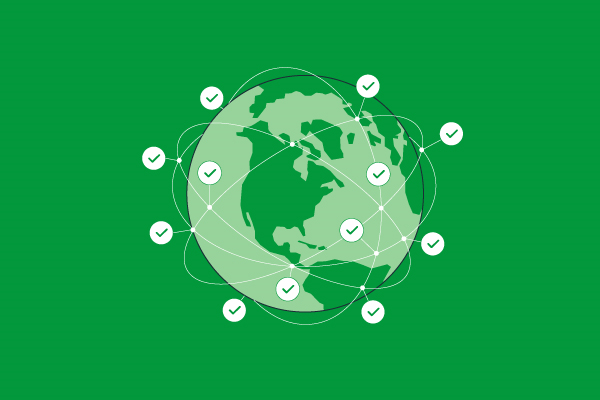In the modern era, the way we deal with money is becoming increasingly digitized. It wasn’t long ago when we searched through our wallets to take out the debit/credit card for payments. The picture of a cashier counting cash or coins at the checkout is getting rare with each passing day, as many are adopting digital wallets for payments. The onset of Covid-19 has further helped the boom of digital wallets or e-wallets since many businesses prefer digital wallets for safety reasons.
Technology plays a cardinal role in personal finance, whether using contactless payments on credit/debit cards or digital mobile payment systems such as Apple Pay, Samsung Pay, or Google Pay. Digital wallets have entirely revolutionized the customer experience as they are more accessible, convenient, and secure means of making payments.
What are Digital Wallets?
A digital wallet is an app-based technology or an electronic version of your traditional wallet that stores your payment data and processes your payments digitally. Mostly, a digital wallet or e-wallet is a mobile application, but it can also be accessed through other mediums such as a website or application on your desktop.
The digital wallet or e-wallet has entirely altered making payments for products and services. Digital wallets can potentially replace the need for physical bank cards as they offer options that include but are not limited to ATM withdrawals, pre-load funds, and peer-to-peer payments. Some e-wallets even store your loyalty cards, vouchers, tickets, and other information.
Instead of pulling out your bank card to re-enter the details for payments, the digital wallets store all the essential information needed for a purchase. You are required to confirm your identity through verification methods such as passwords, fingerprints, or facial recognition.
The Difference Between Mobile Wallets and Digital Wallets
Although mobile wallets and digital wallets are similar, they have minute differences. The digital wallet is a broader term that includes mobile wallets. The apparent difference is while mobile wallets only operate on mobile devices, digital wallets can be accessed on your laptop, desktop computer, and mobile devices.
How do Digital Wallets Work?
The mobile device communicates with the merchant’s payment device’s terminal for in-person payments using Near Field Communication (NFC). The NFC allows your mobile and the merchant’s payment device to exchange the payment information. Popular digital wallets such as Apple Pay and Google Pay use NFC technology for completing payments. The transaction is verified through a password, facial recognition, or fingerprint. The payment data is sent safely through the process of payment tokenization.
Payment tokenization is a method that encrypts the data of your card and connects to the issuing bank when a transaction is initiated to create a specific token used for the purchase. This process is highly secure as the merchant’s device does not acquire your card information upon any e wallet payment and only receives the ticket to complete the purchase.
Some digital wallets, such as Samsung Pay, use the Magnetic Secure Transmission (MST) for payments. A magnetic signal is generated, which is transmitted to the card reader of the merchant’s terminal. The MST technology is quite like swiping the magnetic stripe on a credit card, the only difference being you do not need a physical bank card for MST-based transactions.
Other digital wallets use Quick Response (QR) code to pay for a product or service.
For instance, in PayPal, you can generate a QR code to use your account to complete the transaction.


Benefits of Using Digital Wallets
The convenience, speed, and enhanced security have led to businesses’ increasing adoption of digital wallets. With the constant advancement in technology, there are many reasons to benefit from digital wallets, which include:
Increased Convenience
Digital wallets eliminate the need to carry cash or credit/debit cards. Therefore, you do not have to take several cards or physical cash in your wallet. Through E-wallets, you can enjoy a seamless experience of completing a transaction without taking your wallet. In addition to the bank cards, the digital walls prove convenient as you can store other data such as insurance cards, coupons, gift cards, boarding passes, driver’s licenses, and tickets.
Enhanced Security and Reduced Chances of Fraud
The customer’s payment data is never shared with the merchant due to the process of payment tokenization. A distinct payment token and a cryptogram that expires after a single use immensely decrease the chances of fraudulent payments. Even if your phone falls into the wrong hands, your payment information is secure due to strong encryption.
For better security, Strong Customer Authentication (SCA) is in-built for some digital wallets. SCA is a European requirement that makes online payments more secure and prevents fraudulent activity. The customers must verify every e wallet payment with a fingerprint, facial recognition, or a password. This ensures that digital wallets are more secure than card payments which do not always require verification of your identity.
Increased and Wider Coverage
Several digital wallets offer multiple currencies in different regions across the globe. By accepting the top digital wallets, your business can reach out to more customers.
Decreased costs for sending and transferring money
Compared to traditional financial institutions, digital wallets charge fewer service charges when you share or send money to someone else. E-Wallets are beneficial for anyone who needs to send money to friends and family at home or expats at minimal transaction charges.
Why Must Merchants Accept Digital Wallets?
Digital wallets play a pivotal role in revolutionizing the customer experience and allow merchants to capture an increased number of sales.
Research has shown that 32% of customers in long queues would opt for a more convenient experience, and 11% would choose to abandon the purchased products completely. The faster experience provided by the digital wallets assists the merchants in ensuring their customers are satisfied and increases product sales.
The digital wallets eliminate the chances of human errors, including the cashier overcharging the customers at checkout. Overcharging creates a negative impression upon the customers, which can be avoided by using digital payments that provide an error-free experience.
The traditional payment methods may be deterrent to the younger generation. By accepting digital wallets, the merchants can target the younger demographic and increase the sales of their products.
Simplify Digital Wallet Integration with Oceanpayment
Oceanpayment simplifies digital payments by allowing your company to accept digital wallet payments from leading vendors like Google Pay, Apple Pay. We have helped thousands of businesses with wallet payments and are actively working to simplify the process for others.






Comments are closed.